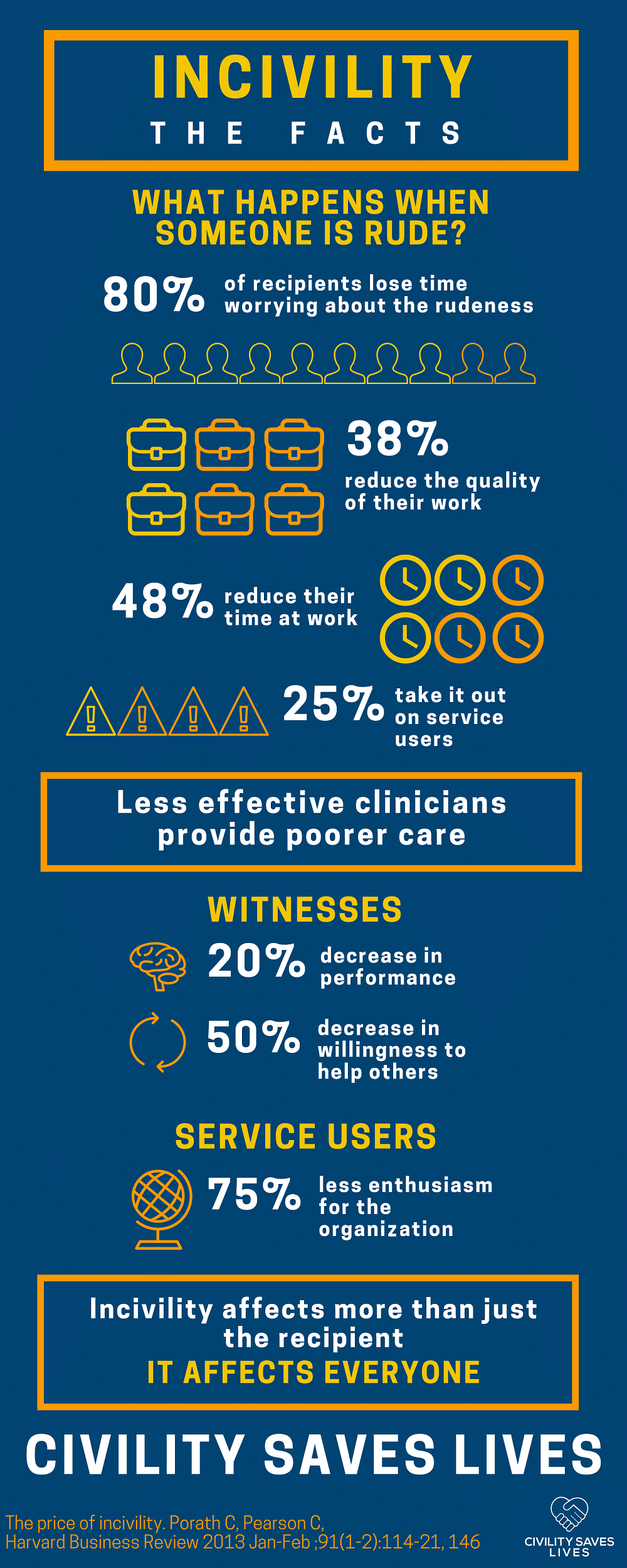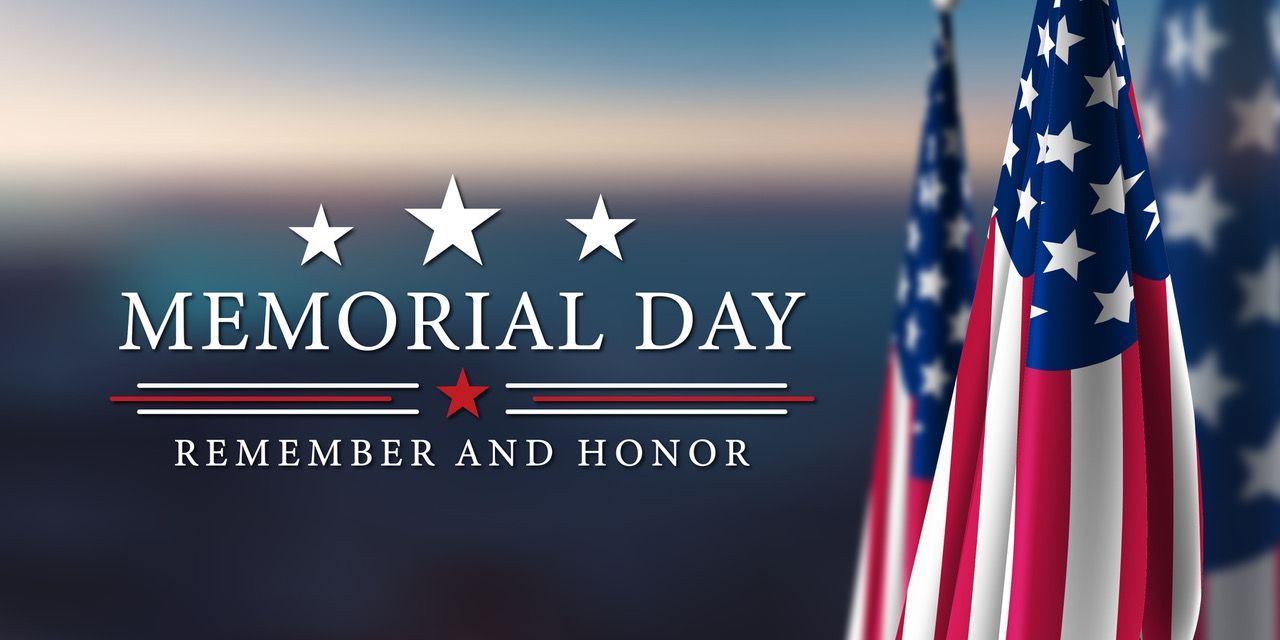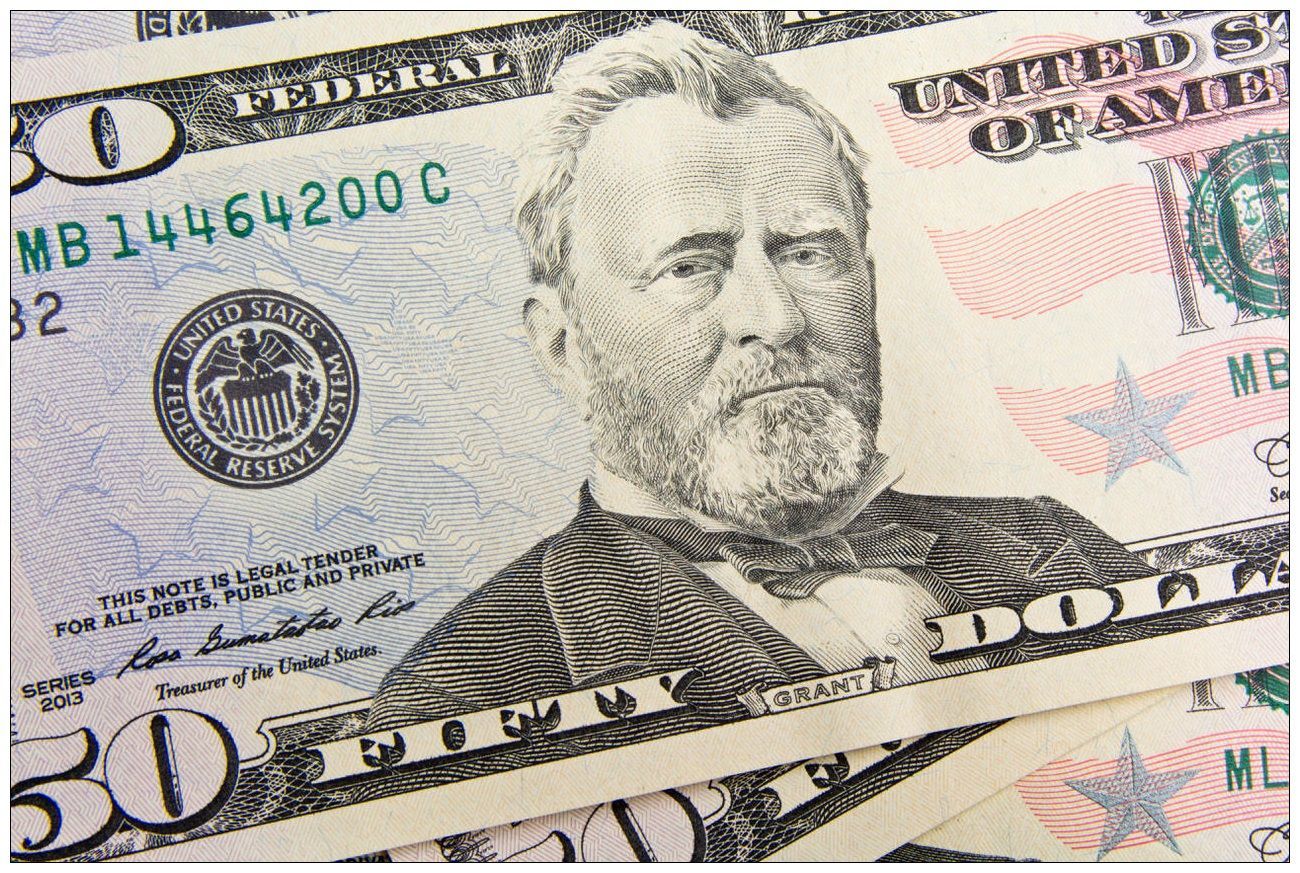How Rude! Incivility on the Rise

Is Rudeness the New Epidemic?
"Attention! Our employees have the right to be treated with dignity and respect at all times.
They should be able to do their jobs without being physically or verbally abused. Most people respect this.
Thank you for being one of them."
(Sign posted in Atlanta's Piedmont Hospital)
Healthcare is just one service industry that has witnessed an alarming increase in rude behavior by the people they serve. Consider the following all-too-common incidents:
- A retail employee who greeted a customer with “good morning” was told, "I do not need you for anything. Leave me alone. If I need you, I will call you. You are here to serve, not to talk with me."
- A restaurant patron berated a waitress to tears because she didn't bring the customer's salad precisely as she ordered it.
- A passenger yelled at a car service driver, "What are you waiting for?! Get your act together!” He then shoved his luggage at the driver and stormed out.
In 2022, 68% of nurses reported verbal abuse during the pandemic. The consensus is that these numbers are increasing, even though the public health crisis has abated. Bad behavior toward frontline workers -- regardless of the role or industry -- has become the norm rather than the exception.

Offensive Driving
In 2022, Forbes Advisor surveyed 10,000 licensed drivers, comparing all 50 states for aggressive driving (such as being forced off the road, cut off on purpose, and yelled at, insulted, or threatened).
The top 10 states with the most aggressive drivers were:
1, Arizona
2. Rhode Island
3. West Virginia
4. Virginia
5. Oklahoma
6. Alabama
7. Connecticut
8. Illinois
9. Texas
10. Ohio
Iowa ranked among the top 10 states with the most polite drivers. (See "Is Iowa Nice Real?")
The 2023 National Consumer Rage Survey revealed that customers are becoming increasingly aggressive in their attempts to solve problems with businesses. For example, 43% of the respondents admitted to raising their voice to show displeasure, compared to 35% in 2015. The survey also found that the percentage of customers seeking revenge against businesses has tripled over the last three years.
What's Behind the Rise in Rudeness?
The increase in incivility reaches across all areas of human interaction. It seems poor behavior is having a moment in our society right now. For instance, violent road rage increased 135% between 2018 and 2022. (See sidebar, "Offensive Driving.”)
Dr. Christine Porath has studied incivility for about two decades, surveying all types of workers worldwide. According to her reports, nearly half of workers polled in 2005 had been treated rudely on the job at least once a month. This figure rose to 55% in 2011 and 62% in 2016.
In 2022, Dr. Porath surveyed more than 2,000 frontline workers across more than 25 industries and found that 76% reported experiencing rudeness at least once a month.
Porath believes that the No. 1 reason for societal incivility is stress. The continually accelerating speed of change and information delivery breeds impatience, resulting in unrealistic expectations of those who serve us. In addition, the pandemic-related transition to remote work reduced face-to-face interaction, resulting in fewer opportunities to develop empathy with one another.
A 2022 University of California study revealed that anxiety, anger, and sadness are the three emotions most strongly associated with increased incivility. According to Dr. Keith Humphreys, a psychiatry professor at Stanford University, people are easily set off by innocuous requests when they are under these stressors.
The Rudeness Contagion
And then there's the contagion factor. In the following video clip, Dr. Porath explains how incivility spreads swiftly throughout communities like a virus.
Responding to Rudeness
But responding appropriately to unabashed rudeness can be challenging, as one medical professional can attest when a patient greeted him with "HEY, A**HOLE!!" as soon as he walked into the ER. "I hadn't even started my shift yet, and he wasn't even my patient," the hospital staffer said.
Rude behavior is sometimes understandable in healthcare settings, where patients are physically and emotionally weakened. On the other hand, it's important to set boundaries. Behaving rudely once can be viewed as a mistake. Doing so repeatedly is a choice.
One way healthcare providers are responding to bad behavior is by adopting policies to help set expectations from the get-go. Hospitals in Boston, Houston, Pittsburgh, and Washington, DC, recently implemented codes of conduct to protect their staff from verbal abuse or disrespect from patients and visitors. More facilities will likely follow suit.
A recommended technique for all service industries is coaching frontline workers on de-escalation tactics and providing scripts for employees to use when responding to incivility. Avoid the temptation to combat rudeness with rudeness. Doing so only perpetuates the cycle of incivility.
--Article Continues Below--

Here are some tips for defusing a tense situation:
Get Them Talking. Customers sometimes raise their voices or act rudely to get your attention. But if you engage them in light, empathetic conversation, they'll know you're listening.
Stay Calm and Don't Argue. Remaining composed during a stressful encounter can help calm the customer or patient. On the other hand, arguing with them can cause the situation to deteriorate to a point where they become aggressive or leave.
Use Positive or Neutral Language. Positive language can change the way the brain responds to stress. So use only positive or neutral words, regardless of the language they use with you.
Apologize Without Admitting Fault. "I'm sorry for the frustration this situation has caused you."
A calm, confident person delivering brief, clear information is the best way to bring these situations back in line. As one physician commented in the Journal of the American Medical Association, being kind but firm is essential when encountering rudeness.
She suggests: 'I care about you as a person, but I will not tolerate offensive behavior. Now let's focus on how I can help you today."
Sources:
Featured Image: Adobe, License Granted
Atlanta Journal-Constitution
Becker's Hospital Review
Relias
Recent Posts











Share On: